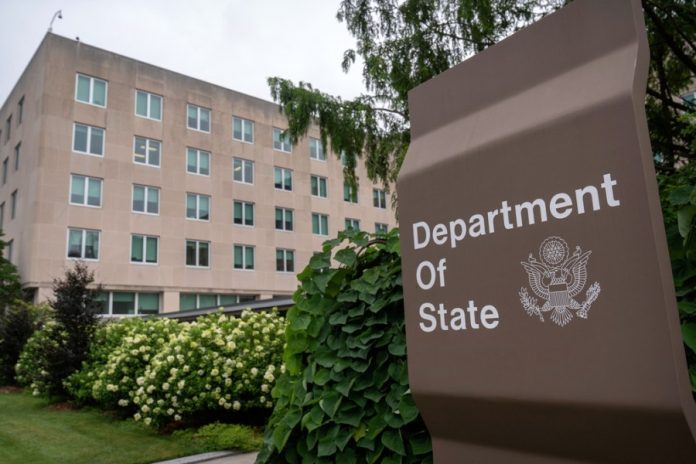
The recently released U.S. Department of State Human Rights Reports have stirred significant controversy about notable cuts in length and issue coverage, delayed release, and perceived bias, particularly on countries like Hungary, Brazil and South Africa.
Equally concerning is the disconnect between migration policy and the reports’ coverage of countries like Haiti, Ukraine and Afghanistan and the unduly rosy reporting of countries like El Salvador. Each case highlights this troubling inconsistency, as well as the willingness to deport people to dangerous situations, and — more broadly — a significant divergence from American foreign policy.
The State Department should seriously review the concerns voiced by journalists and democracy defenders about the mischaracterization of human rights situations in countries aligned with the U.S. and those with which tensions exist.
The Department of Homeland Security should carefully review those past or pending deportation cases to highly insecure countries. Given its important oversight responsibility, Congress should investigate whether deported migrants face life-threatening situations due to U.S. deportation, since that would be both inhumane and counter to America’s democratic values.
The inconsistency between U.S. human rights reporting and immigration policy is most clearly seen in efforts to lift protective designations such as temporary protected status for certain foreign nationals in the United States. This provisional legal classification is granted when a home country is considered temporarily unsafe or unable to “adequately” handle the return of its nationals.
Haitians initially received temporary protected status due to a 2010 natural disaster, followed by extensions triggered by extreme security conditions which make return unsafe. The Human Rights Report found that the human rights situation there “worsened significantly” because of “the lack of state capacity to protect civilians from expanding gang violence and individuals’ decreasing rights in areas such as freedom of expression.”
Nevertheless, the administration recently sought to lift temporary protected status for Haitians and has terminated the Cuba, Haiti, Nicaragua and Venezuela Parole Program that allowed some nationals from those four countries to legally enter and work in the United States temporarily. The courts blocked the effort to remove Haitians’ temporary protected status, but the Cuba, Haiti, Nicaragua and Venezuela Parole Program termination was allowed to proceed. The administration’s position on these programs illustrates a troubling gap between the reports and humanitarian immigration policy.
Similarly, Homeland Security Secretary Kristi Noem announced in May that the United States would rescind temporary protected status for Afghan nationals, many of whom supported U.S. objectives in Afghanistan.
“Afghanistan has had an improved security situation, and its stabilizing economy no longer prevent them from returning to their home country,” Noem argued in determining that the conditions “no longer meet the statutory requirements” for temporary protected status.
But the Human Rights Report stated that there was “significant deterioration in respect for women’s rights during the year” and that Taliban members “reportedly killed persons in retaliation for their association with the pre-August 2021 government.”
This is particularly concerning for those Afghans who served U.S. interests and face a heightened threat of retaliation upon return. Leaving aside the moral argument against sending back Afghans who helped the U.S., the State Department’s report makes the case that deporting them would place them in grave danger.
Similarly, Ukrainians who have fled the brutal Russian war were granted a temporary humanitarian status due to the war. The administration withdrew this status which means over 120,000 Ukrainians will be forced to return to their homeland during an active war if they lack an existing asylum request.
Of additional concern is the U.S. deportation of migrants to third countries that have deeply problematic human rights records as clearly delineated in the Human Rights Reports, such as South Sudan, Rwanda and Eswatini.
In the case of El Salvador, whose president is a close partner in the administration’s deportation efforts, the State Department assessments diverged from widespread evidence by respected sources that there are major human rights violations, including against children. The country report states that there are “no credible reports of significant human rights abuses,” raising questions about its credibility.
While deporting people from the United States is within the purview of any American administration and removing people with criminal records is standard policy, sending these individuals to countries where they may face significant abuse and danger is a troubling divergence from traditional U.S. standards and simple decency. So is cutting deals and providing U.S. financial and/or political support to problematic regimes and leaders who host deportees but are also sanctioned by the United States, as is the case with South Sudanese leader Benjamin Bol Mel.
Historically a powerful tool in American policymaking, the Human Rights Reports have traditionally provided an objective source to inform foreign and domestic policy, reflect American values, and project American democratic global leadership. Immigration enforcement, including removals, is a necessary component of immigration policy. But it should not undermine American values and foreign policy objectives.
Any distance between American human rights standards and our handling of migration policy undermines American values and the United States’ position in the world. It also damages America’s credibility and ability to secure its interests globally at a time where these interests are threatened by global competitors.
Nicole Bibbins Sedaca is the Kelly and David Pfeil Fellow at the George W. Bush Institute. Laura Collins is Director of the George W. Bush Institute-SMU Economic Growth Initiative at the George W. Bush Institute.

